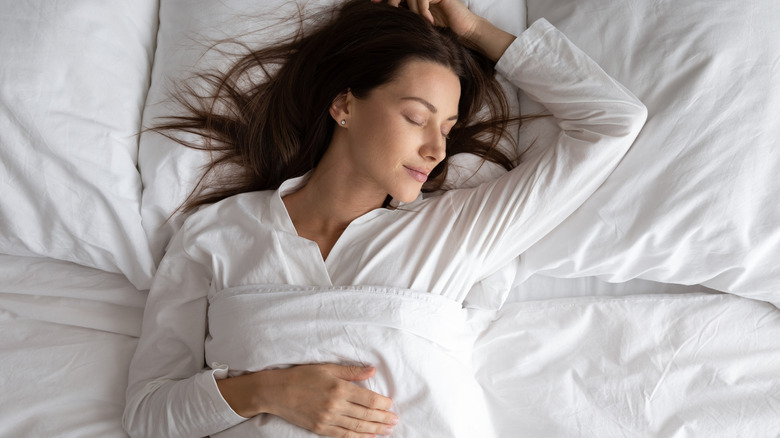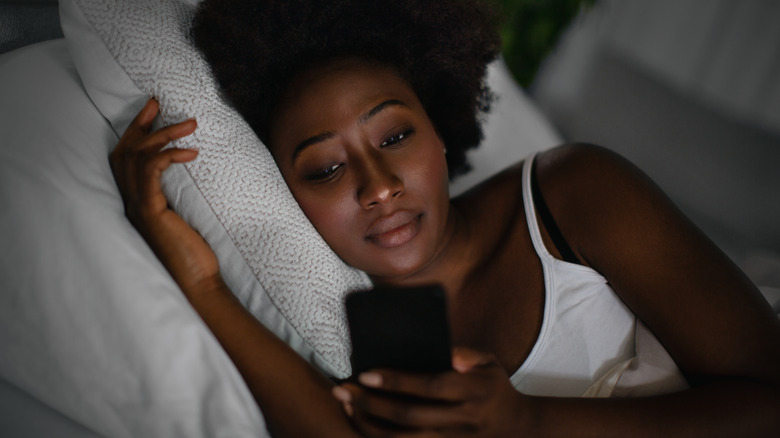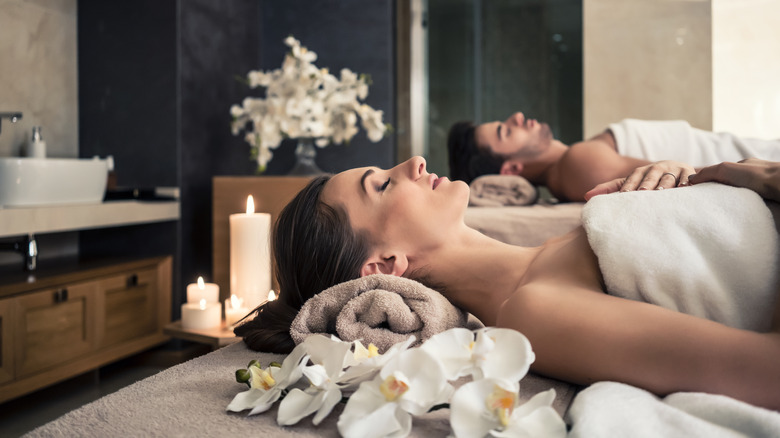Sleep Tourism Could Be The Antidote To Exhausting Vacation Plans
Ever experienced the paradoxical feeling of needing a vacation from your vacation? After a whirlwind of red-eye flights, jam-packed sightseeing schedules, or going on just one more "must-do" excursion, feelings of exhaustion often begin to seep in, making your dream trip feel more like a test of endurance. Instead of coming home feeling rejuvenated, we often find ourselves more exhausted than before we left. Aren't vacations supposed to be relaxing?
The realization that vacations should be restful but often aren't has spurred the concept of sleep tourism. This travel trend is aimed at prioritizing rest over traditional sightseeing. It focuses on creating an environment that encourages quality sleep and effective rejuvenation during your vacation. Gone are the terrible pillows; the gauzy, billowing curtains that let in the first rays of early morning sunlight; and the need to tick as many items off your bucket list as possible. Your aim is to go home feeling refreshed and energized rather than depleted.
Why go on vacation to sleep?
We admit it can seem strange to go on vacation with the main goal being to sleep. But there are so many reasons why sleep tourism is taking off. First, the statistics around sleep problems are sobering. Adults need at least seven hours of sleep a night on average, but 40% of Americans are getting less than that, according to a Gallup poll. A lack of sleep can cause a whole host of physical and mental health problems, including cardiovascular issues, and a higher risk of obesity, depression, and anxiety.
Whether you're already suffering from some of these issues or you want to head them off at the pass, prioritizing your sleep begins to make sense. But can a short vacation really make a difference? According to the experts, yes, it can. Speaking to CNN, Dr. Rebecca Robbins said that experiences that focus on teaching healthy sleep hygiene can pay dividends, even if the trip is short.
Doze off in a dreamworld
But what do sleep vacations look like? There is no one way to experience sleep tourism. For some, it's a high-tech, luxury experience with A.I.-powered beds and essential oil diffusers. Think serene locations, quiet accommodations, no rigid schedules, and expert-guided sleep techniques and therapy. The hotels and resorts that offer sleep tourism all offer different combinations of items for better sleep plus relaxing spa services and mindfulness activities.
Of the assortment of options, there's the Cadogan Hotel in London, which offers a sleep concierge service with a pillow menu and a bedtime tea. There are the Six Senses hotels, which work with a sleep doctor to create a personalized wellness program for guests. And in the U.S., there's the Park Hyatt New York, where those A.I. beds we mentioned adjust to help you sleep throughout the night.
For those looking for a more reasonably priced alternative, a sleep vacation might mean sleeping under the stars in dark-sky areas. Sleeping outdoors away from natural light and without technology can help reset your circadian clock to align with the natural rhythms of daylight and darkness, according to Healthline. Whether you choose to pitch a tent in the great outdoors or check in to a luxury resort, sleep tourism will help you bring home a well-rested you, which is the best souvenir you could get.


